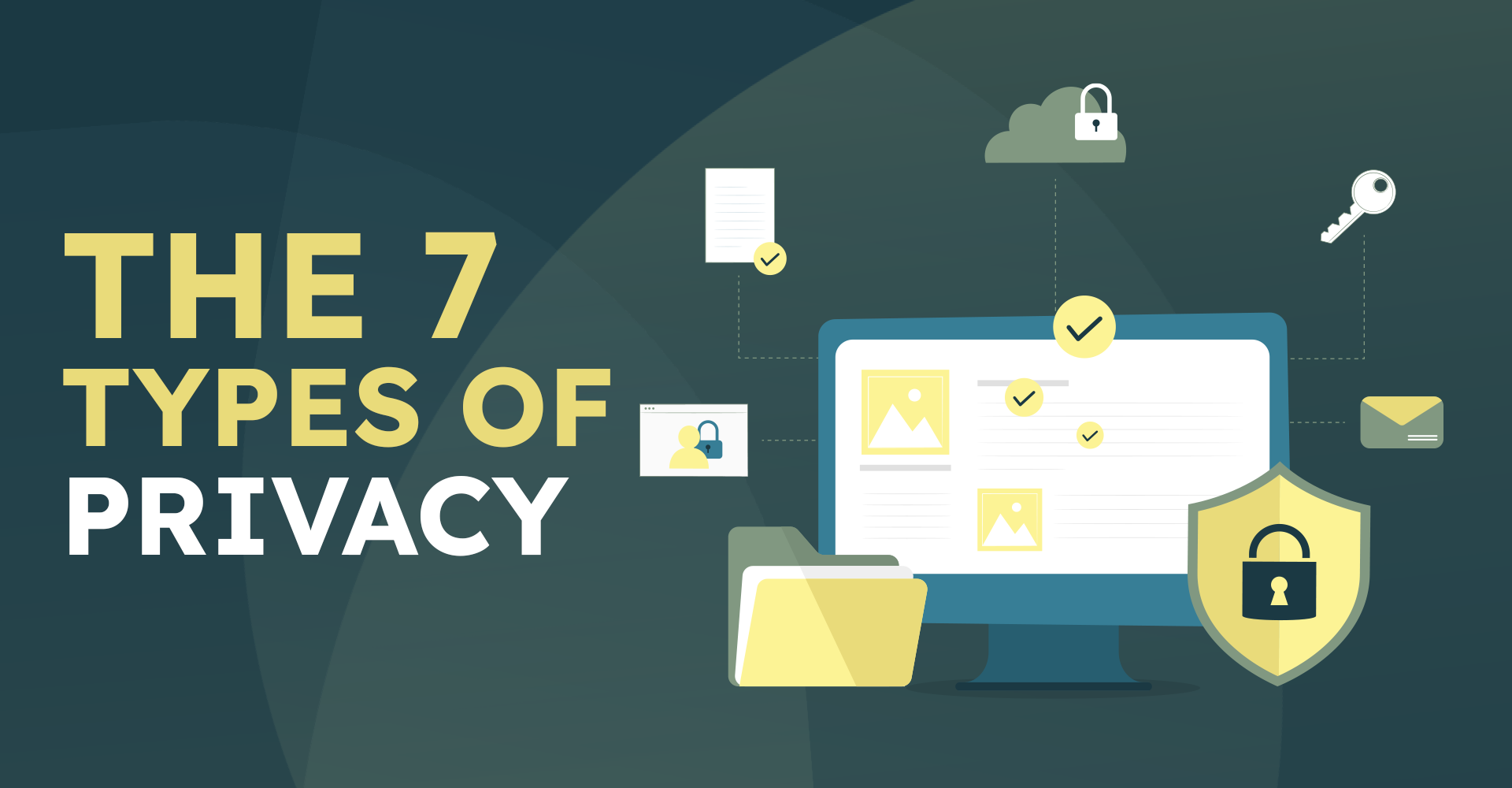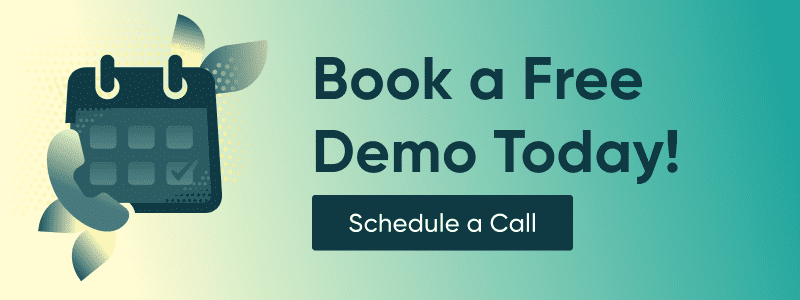The 7 Types of Privacy: How Privacy is a Fundamental Right

Table of Contents
The expectation of privacy is a protected facet of life. We might not expect privacy in every scenario, but most of us assume that in the comfort of our homes, or when using personal devices like laptops and smartphones, we have a degree of privacy.
While it’s not explicitly mentioned in Maslow's Hierarchy of Needs, it can be implied as a part of the second tier of that famous pyramid. This tier refers to safety needs such as health, property, personal security, resources, and employment.
Since privacy contributes to personal security, it’s a fundamental right that we all deserve. More importantly, privacy is about more than data protection. If you’ve never given privacy more thought other than cookie consent, be prepared to understand the myriad of ways that this concept impacts our lives.
The 7 Types of Privacy
You might think of privacy as protection from government overreach, but it extends far beyond that. Referring back to Maslow’s pyramid, let’s think about the fact that privacy is part of the second tier that refers to personal security.
If you’re not familiar with Maslow’s pyramid, the theory posits that the lower on the pyramid a need sits, the more essential it is for a person to function properly in society. You can’t move up the pyramid until the needs in the lower tiers are met first. So, with this in mind, personal security sits only above physiological needs such as food, shelter, health, rest, and the ability to reproduce.
Note that there are seven types of privacy – each dealing with different facets of our daily lives.
1. Privacy of the Individual
You can think of privacy of the individual as bodily autonomy. Bodily autonomy is the idea that you have control of your body, as well as who has access to it. This goes beyond, for example, assault. Being attacked by another individual is a clear invasion of bodily autonomy.
However, bodily autonomy can also be seen in teaching a child that they have the right to say they don’t want to be touched by someone. Just because you suggest they hug Aunt Mable doesn’t mean they have to let a person touch them if they’re uncomfortable.
Meanwhile, privacy of the individual can also refer to thought ownership. Recently, advances in research in neurological disorders have spurred conversations about the importance of redefining mental privacy within the scope of clinical research and the real-world implications they pose.
2. Privacy of Behavior and Action
Privacy of behavior and action speaks to our right to express ourselves about specific topics such as politics, religion, or even our sexual orientation. This particular privacy tenet aligns most closely with the Declaration of Independence, the Bill of Rights, and the Civil Rights Act.
As a nation, we hold that people are entitled to practice a faith if they choose to do so, without infringement. Likewise, people can’t be marginalized for political affiliation, or be discriminated against because of their sexual orientation.
But in the same vein, a person has the right to not disclose this information — without fear of repercussions or backlash. Note that this type of information can also fall under data privacy laws since any of the above can be used for ad targeting.
3. Privacy of Communication
This tenet is fairly straightforward. We assume that when we send a communication whether, via snail mail, electronic, phone, or text message, it won’t be intercepted at will. While wiretaps can and do happen, formal requests must be placed in writing, with other governing individuals or bodies approval for them to be enacted.
Similarly, the types of content you send can also be classified as protected information. For example, in the United States, we have the Health Insurance Portability and Accountability Act (HIPAA) which outlines the protective steps health care and health adjacent organizations like insurers must take when sending communications with patient information.
For the average citizen who wants added privacy layers when sending communications, features like end-to-end encryption texting (think WhatsApp or KaKaoTalk), or even installing a virtual private network (VPN) for their home internet network can keep prying eyes from intercepting and collecting personally identifiable information like banking details or social security numbers.
4. Privacy of Personal Data
This is the privacy tenet that most directly impacts commercial enterprises. People have a right to know how their personal information is being used or even collected as they navigate public spaces — including websites.
Likewise, businesses have a legal responsibility to identify what information (if any) is being collected, if it’s being shared, and how it’s being used. From the European Union’s GDPR to California’s CCPA, governing bodies are cracking down on data collection for commercial gain.
Many nations and U.S. states take this demand a step further by requiring businesses to provide a means for individuals to opt out of having their data collected or shared. More importantly, businesses need to have protocols in place to comply with these requirements or face the risk of hefty fines.
5. Privacy of Thoughts and Feelings
Not to be confused with privacy of behavior and actions, privacy of thoughts and feelings is slightly different. While behavior and actions refer more to how a person outwardly navigates through life, or associations they align with, thoughts and feelings are closer to privacy of the individual.
In the context of privacy concerns, this goes back to earlier conversations about how technology is being used to glean information about neural function. From studying neuro-atypical conditions such as autism to researching dementia, depression, or addiction, human rights groups are sounding the alarm that advances in research technology may be encroaching on personal freedoms.
As a result, many nations are beginning to create legislation to regulate neurotechnology through “neurorights.”
6. Privacy of Location and Space
Privacy of location and space has been challenged for decades and in many ways is nearly non-existent. Some cities such as New York City are viewed as almost police states because of the massive surveillance network established after 9-11.
Likewise, telecommunications companies have long been required to comply under regulation by the Federal Communications Commission (FCC) with the Communications Assistance for Law Enforcement Act (CALEA). This is a mandate that if law enforcement needs to perform surveillance, telecommunications providers must have equipment that can comply with that demand.
7. Privacy of Association
Finally, the privacy of association refers to your right to befriend or interact with whoever you choose, without that connection being used against you. In short, you shouldn’t be judged because of the company you keep. In theory, this is true, as the saying goes, we shouldn’t judge books by their covers.
But we all know that the company you keep is unfortunately a reflection of you — whether you like it or not. Being associated with individuals or groups that have bad reputations can and will make you undesirable as a job candidate, when applying to schools, or even getting into a condo with a strict review board. Likewise, if you have a laundry list of friends who are convicted felons, this can put you up close and personal with law enforcement whenever any of these people commit a crime.
Prioritizing and Protecting Privacy
Protecting privacy is a conversation that’s going to continue to evolve. As technologies advance across industries, how they’re used, the information they glean, and the threats such details pose to personal privacy are going to be important. But even as things evolve, the basic expectation of a right to privacy as we navigate private and public places remains.
As a business owner, this means you have a responsibility to be a good steward of data collection. You need to ensure that any information collected is stored and/or sent with proper encryption. Likewise, no matter where in the world you’re operating, you need to be compliant with major privacy and data protection laws.
Compliance doesn’t have to be a chore, and Enzuzo is an easy-to-install consent management platform that can ensure your website is maximizing customer experiences by giving them control where they need it most — with their personal information.

Osman Husain
Osman is the content lead at Enzuzo. He has a background in data privacy management via a two-year role at ExpressVPN and extensive freelance work with cybersecurity and blockchain companies. Osman also holds an MBA from the Toronto Metropolitan University.
